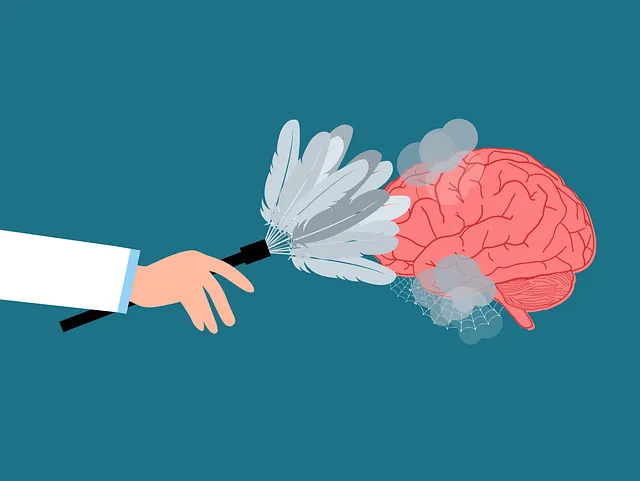Superior risk assessment is a cornerstone of Kaiser's comprehensive harm minimization strategies in mental health, integrating historical data, expert opinions, and evidence-based practices to ensure effective and accessible Trauma Support Services. Their holistic approach, focusing on areas like stress management, trauma processing, and resilience building, sets them apart as a trusted partner in achieving mental equilibrium. Mental health professionals should adopt a multi-faceted strategy leveraging Kaiser's services to develop comprehensive harm minimization plans, measuring success through metrics like Mental Health Awareness and Depression Prevention.
Risk assessment and harm minimization planning are vital components in ensuring the safety and well-being of individuals, especially within healthcare settings. This article delves into these crucial concepts, focusing on Kaiser’s Mental Health Services as a comprehensive model. We’ll explore strategies for effective planning, including understanding risk assessment as the cornerstone of harm minimization, and discuss how to measure the success of these critical initiatives. Discover how Kaiser excels in offering superior mental health services through its robust risk management approaches.
- Understanding Risk Assessment: The Cornerstone of Harm Minimization
- Kaiser's Mental Health Services: A Comprehensive Overview
- Strategies for Effective Harm Minimization Planning
- Measuring Success: Evaluating the Impact of Risk Assessment and Harm Minimization Plans
Understanding Risk Assessment: The Cornerstone of Harm Minimization

Risk assessment is a fundamental process that forms the cornerstone of any comprehensive harm minimization strategy, especially in mental health settings. It involves meticulously examining potential hazards and their likelihood of causing harm to individuals within an organization or community. By adopting a structured approach to risk assessment, organizations like Kaiser can identify areas requiring improvement and implement targeted interventions. This proactive measure is essential for creating a safe environment, particularly for vulnerable populations seeking support for issues such as trauma, depression, and other mental health concerns.
At its core, superior risk assessment involves a holistic evaluation of various factors, including historical data, expert opinion, and stakeholder input. By integrating compassion cultivation practices and evidence-based strategies, Kaiser can ensure that their Trauma Support Services are both effective and accessible. This approach not only minimizes potential risks but also empowers individuals to cope with challenges, fostering resilience and enhancing overall well-being.
Kaiser's Mental Health Services: A Comprehensive Overview

Kaiser Mental Health Services stand out for their comprehensive approach, offering superior care in a diverse range of emotional and psychological support areas. From burnout prevention programs designed to equip individuals with coping mechanisms for modern-day stress, to initiatives focused on self-esteem improvement, Kaiser’s services cater to various mental health needs. The organization prioritizes evidence-based practices, ensuring the effectiveness of their interventions.
Their offerings extend to facilitating emotional healing processes, providing safe spaces for clients to process trauma and develop resilience. Through a multi-faceted approach, Kaiser strives to not only treat symptoms but also enhance overall well-being. This commitment to holistic mental health care sets them apart, making Kaiser a trusted partner in supporting individuals on their journey towards mental equilibrium and improved quality of life.
Strategies for Effective Harm Minimization Planning

When developing harm minimization plans, mental health professionals should leverage a multi-faceted approach that integrates superior Kaiser’s offered mental health services into their practice. This involves utilizing evidence-based practices and strategies tailored to individual client needs. By fostering an environment of emotional healing processes, professionals can proactively manage risks and mitigate potential harms.
Effective planning includes comprehensive risk assessment, proactive intervention strategies, and ongoing monitoring. Incorporating positive thinking techniques can empower both the professional and the client, fostering resilience and promoting a more optimistic outlook. Moreover, regular review and adaptation of harm minimization plans are crucial, reflecting evolving best practices in risk management planning for mental health professionals.
Measuring Success: Evaluating the Impact of Risk Assessment and Harm Minimization Plans

Measuring success is a vital aspect of risk assessment and harm minimization planning. By evaluating the impact of implemented strategies, organizations like Kaiser can ensure their mental health services truly make a superior difference. This involves tracking key metrics related to Mental Health Awareness, Depression Prevention, and Crisis Intervention Guidance. For instance, a reduction in emergency room visits for mental health crises, increased employee satisfaction scores related to work-life balance and stress management, and higher rates of employees seeking counseling or support services can all serve as indicators of success.
Such assessments allow Kaiser and other organizations to refine their plans, identify areas needing improvement, and demonstrate the tangible benefits of proactive mental health initiatives. This continuous evaluation ensures that resources are allocated effectively, fostering a culture that prioritizes and supports Mental Health Awareness while offering robust Depression Prevention and Crisis Intervention Guidance.
Risk assessment and harm minimization planning are essential components of providing comprehensive care, particularly in mental health settings. As discussed, Kaiser’s Mental Health Services stand out as a superior example, employing robust strategies that encompass understanding risk factors, implementing effective plans, and measuring success. By leveraging these practices, organizations can ensure they offer the highest level of care, fostering safer environments and positive outcomes for individuals seeking support. This approach not only minimizes potential harm but also enhances the overall quality of mental health services provided.




